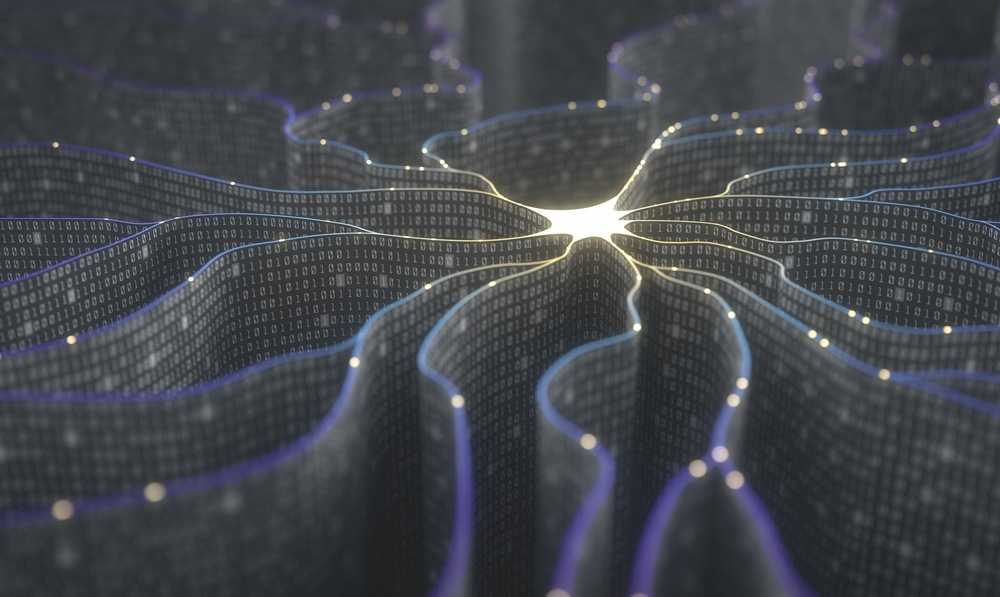How and why can we have such rich, vivid perceptual experiences?
This is philosophers and psychologists, in the tradition of David Chalmers, call the hard problem of consciousness. Rather than starting with a hard problem, Integrated Information Theory prefers to start with a hard fact.
Some arrangements of particles are conscious.
What does it mean to be conscious?
Integrated Information Theory, or IIT, first devised by Giulio Tononi in 2004, provides one answer to the question.
According to Integrated Information Theory, we can measure the degree to which different parts of a system are aware of each other. If parts of a system is sufficiently aware of other parts of the same system, we can call it conscious.
Just like viscosity, electrical conductivity or density, the degree to which something is conscious can be measured. The unit of measurement is called Phi, or ϕ.
Tononi has offered empirical evidence of this ability to quantify consciousness by using EEG after electromagnetic stimulation on the human brain. What he demonstrates is that the human brain enjoys a very high degree of integrated information - the parts of the brain are very aware of each other.
It's this interconnectedness that explains the fact that the arrangements of particles which make up human minds are conscious.
How can it explain the rich perceptual experience of consciousness?
Matter almost always (if not always) has properties which do not rely on the matter itself. In other words, matter can develop properties over and above the properties of the matter itself.
Consider this example that I borrow from my favourite physicist, Max Tegmark. Water has the property of wetness, but ice does not. The wetness has nothing to do with the particles that make up the water. Those very same particles are dry below freezing. These properties are what physicists call emergent properties.
Furthermore, matter can have properties which seem independent from the matter itself. Consider the motion of waves moving through water. The motion of these waves is complex and mathematical, with properties of its own which has nothing to do with the water within which they exist. These properties would share the same mathematical properties and visual patterns no matter what body of liquid (or gas) they pass through. Physicists say that they are substrate independent.

Interestingly, computation is substrate independent, too. Turing demonstrated that computation can be performed by anything at all, as long as it has a certain set of basic abilities.
And so it is with consciousness. When we go into a deep sleep, we're still made of the same particles - they're just not communicating with each other.
What are the implications?
-
AI can be conscious. A bold and interesting implication is that building genuinely conscious AI should be possible. The only requirement for consciousness would be that the parts of the system are sufficiently measurably aware of each other.
-
There are degrees of consciousness. It also follows that consciousness isn't all-or-nothing. There are degrees of consciousness, just like there are degrees of density or viscosity. Information is somewhat integrated in most natural systems to a degree, and in some artificial systems. However, a high degree of integrated information requires a very complex system, and is enjoyed only by a minuscule amount of the matter available to the universe, such as human brains.
-
We can test for consciousness. We can test this theory that we can measure consciousness in a scientific way. As we've seen with Tononi's EEG experiments, this is something that has already been successfully attempted albeit in a simplified manner. Right now, its validity rests on its ability to explain some of our most obvious phenomenological observations in a coherent way - but if we can test that, then this could change the way we think about our perceptual experience.
-
Dualism looks pointless. The philosophical side is where my particular interest comes from. If this theory is right, it vindicates materialist philosophies of mind. In other words, we would have no reason not to believe that everything is just physical matter, and in fact, IIT gives us positive reasons to embrace materialism. Since the brain obeys the law of physics exactly, even if there is a mind, soul or some other entity that "makes us who we are", it is completely redundant and has no impact whatsoever on the physical matter, reducing it to an object of pure belief.
-
Occam rescues us from complicated ontologies. For the philosophy nerds - those of us who favour a nice parsimonious ontology will be particularly interested in how this account also allows us to explain why we (as conscious beings) have no particular ontological privilege, which is particularly good news for the Existence Monist or the Mereological Nihilist. I use IIT to circumvent possible objections to my thesis in my undergraduate dissertation, Problems with Priority and the Benefits of Existence Monism.
I'm really interested in learning about alternative materialist definitions of consciousness, so please do get in touch if you've heard about a theory you find convincing!
Why not let me know your thoughts on Twitter?



